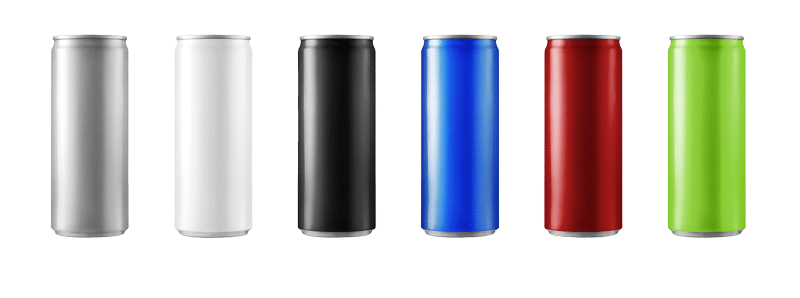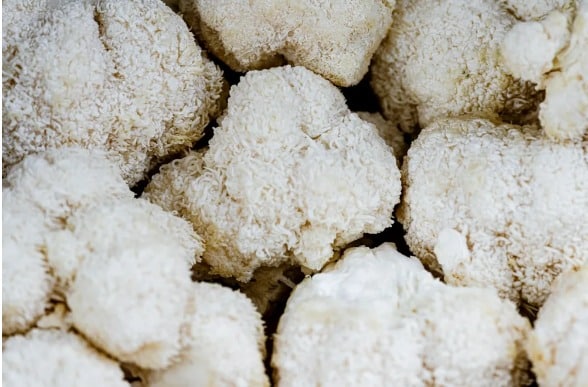First of all, unlike some other medicinal or functional mushrooms, Lion’s Mane is also a culinary mushroom – it’s delicious.
Lions Mane grows on trees and is white/cream-coloured with a shaggy, hairy appearance. It is very popular in Asian cuisine and widely available in supermarkets. You can also find it growing in the forest right here in Canada, but as it is rare, we use Lion’s Mane farmed on maple wood for our drinks. Should you find one in the wild, we recommend leaving it to its own devices and purchasing farmed instead.
If you want to really geek out and are interested in growing your own, several Canadian companies are offering grow kits that will produce great harvests in your home. Lion’s Mane is hardy and one of the easier mushrooms to grow yourself.
Additionally, Lion’s Mane (Hericium Erinaceus) has of course, a long history of use in traditional Chinese medicine. It is widely available in fresh, dried, and supplement form.
Lion’s Mane and depression and anxiety
According to research, Lion’s Mane may help alleviate depression and anxiety.
A 2020 study called Lion’s Mane, “a potential alternative medicine for the treatment of depression.” and a 2021 research review detailed several studies that showed significant anti-anxiety effects.
The many benefits of Lion’s Mane
Lion’s mane appears to offer neuroprotective functions, cytotoxicity, anticarcinogenic, antidiabetic, antimicrobial, and herbicidal activities.
The mushrooms contain compounds showing some evidence of supporting both brain health and cognitive function, including hericystin and erinacine.
These compounds can potentially help to reduce the risk of chronic diseases. In addition, research suggests that erinacine helps to increase blood flow to the brain, improves cognitive function and has anti-inflammatory properties.
Hericystin helps protect nerve cells from damage, supports new nerve cells’ growth, and has potent anti-inflammatory effects.
Erinacine is thought to work by inhibiting an enzyme called acetylcholinesterase, which is responsible for breaking down the neurotransmitter acetylcholine. Acetylcholine is involved in many essential functions, including memory, learning, and muscle contraction.
In one study, people with mild cognitive impairment who took a supplement containing erinacine showed improvements in memory and cognitive function after four weeks.
In another study, people with arthritis who took a supplement containing erinacine for eight weeks had reduced pain and inflammation.
Lions Mane contains antioxidants, including superoxide dismutase (SOD) and catalase. These can potentially help to protect cells from damage caused by free radicals.
They are also a good source of B vitamins essential for brain health. B vitamins help to produce energy in the brain and support cognitive function.
Lion’s Mane and gut health
Lions Mane mushrooms may also support gut health by reducing inflammation and promoting the growth of healthy gut bacteria.
When eaten whole, they are a natural fibre source, supporting digestive health.
Have you discovered Lion’s Mane yet? Let us know in the comments below.


